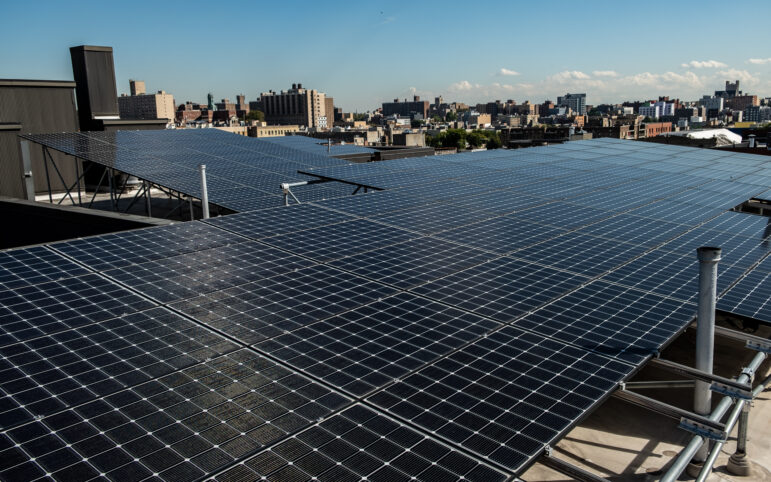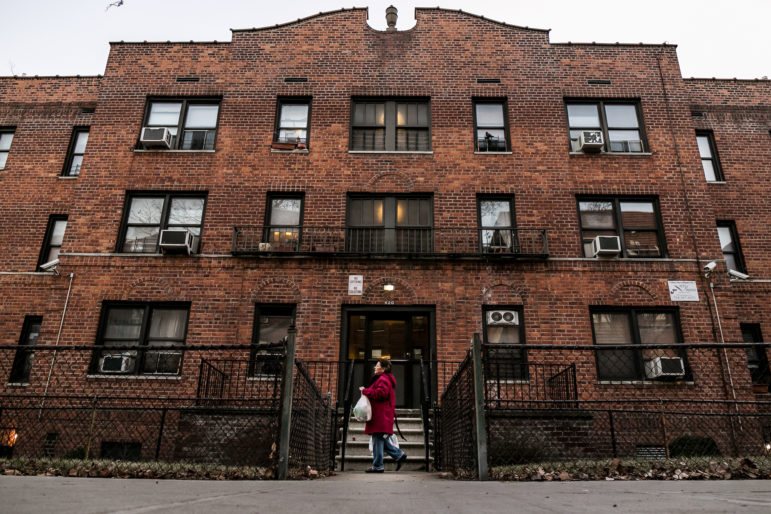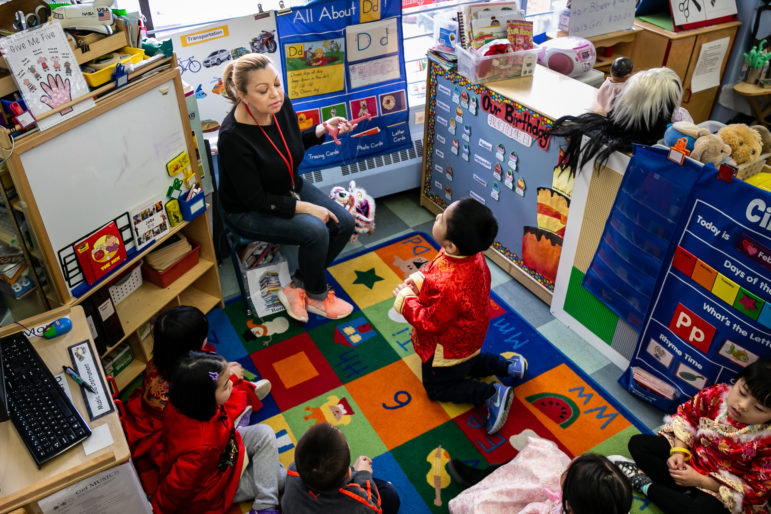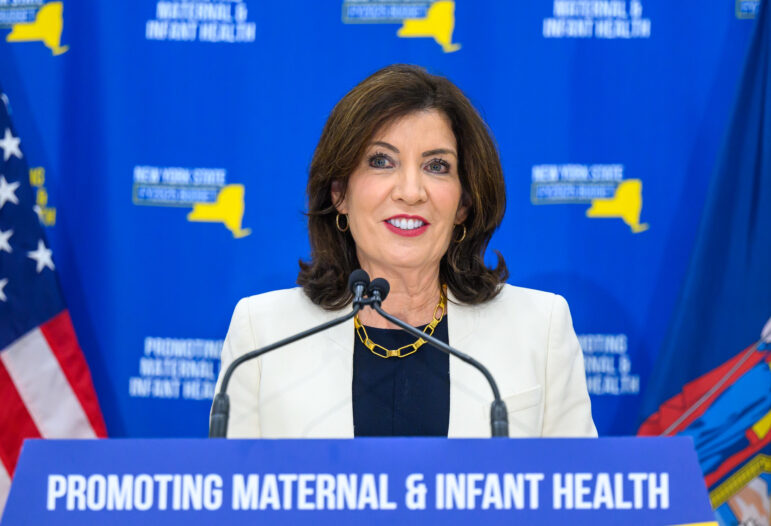“It is vital that people have options because there is no one-size-fits-all solution to the overdose crisis. Recovery was the right path for me, but harm reduction interventions that help individuals use drugs more safely might work better for others.”
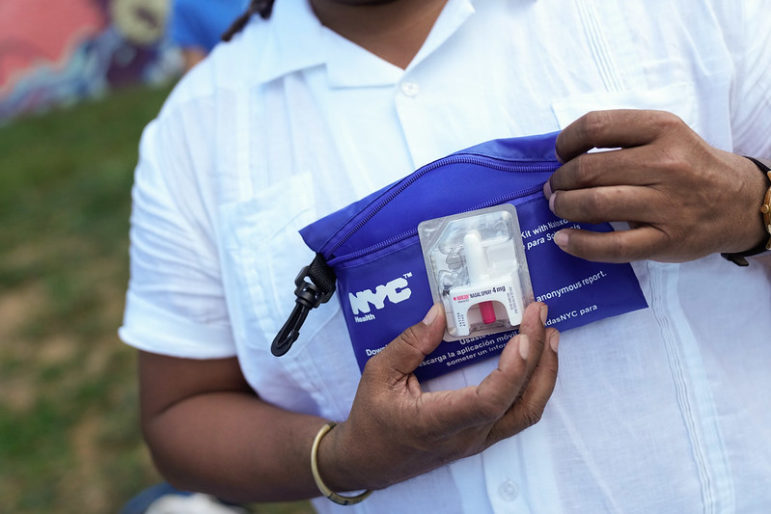
Michael Appleton/Mayoral Photography Office
An overdose prevention kit at a Health Department fair in Brooklyn.It is well-documented that the overdose crisis is getting worse. Deaths have reached record numbers in New York City and across the country. It is a frightening time, but not a hopeless one.
This Recovery Month, I hope that sharing my personal experience will help others to see that no matter where you are on your journey, you are not alone. My story also illustrates that recovery is rarely a linear path, and that a full spectrum of harm reduction and recovery options are necessary to ensure everyone can work towards their individual goals.
Growing up, school was my escape from a difficult home life. I poured myself into my studies and got straight A’s. My stepmother did not accept me, and I was kicked out of my home at age 17. I always saw higher education as my path to happiness and success, so even though I was on my own, I enrolled in college and thrived. In my second year, I was devastated when I had to withdraw because my father would no longer sign my financial aid forms.
I felt like I had lost my identity. I didn’t think I was worth it, or that I deserved happiness. I was in a very dark place, and after I nearly died in a car accident, I felt hopeless. I turned to drugs to drown my pain.
Thankfully, I had a friend who encouraged me to enter a detox program. This was the start of my recovery journey, but not the end. I relapsed and really struggled. I received medication-assisted treatment (MAT), which helped with my cravings. I met my now-husband in an outpatient group, and when we found out we were expecting a baby, she was the inspiration we needed to keep going with our recovery. I am proud to be nine years sober, and that we have given our daughter a loving and stable life.
Another important aspect of my recovery is helping others, which has always been a passion of mine. When I heard about the nonprofit Alliance for Positive Change and its peer training program, I knew it was for me. The class provided me with the foundation to build a career helping other people in their recovery, as well as people living with HIV and other chronic health conditions.
Alliance’s work is grounded in harm reduction practices that support and honor each individual’s chosen pathway to positive change. It is vital that people have options because there is no one-size-fits-all solution to the overdose crisis. Recovery was the right path for me, but harm reduction interventions that help individuals use drugs more safely might work better for others.
I hope that our city will continue to address the overdose and opioid crisis by investing in a continuum of harm reduction and recovery programs. It is heartening to see the expansion of everything from MAT to Overdose Prevention Centers, which are proven effective and save lives.
It is also incredibly helpful for people in recovery to have employment support, especially if they can help others facing similar challenges. Targeted investments in workforce training programs to help people with lived experience secure employment in the recovery field would go a long way.
This Recovery Month, I want others who are struggling with substance use to know that no matter where you are on your journey, there are resources that can help. Connecting with a community that affirms your humanity, dignity, and safety is an important first step. Your life is worth it.
Brittany Gomez is a peer with Alliance for Positive Change


